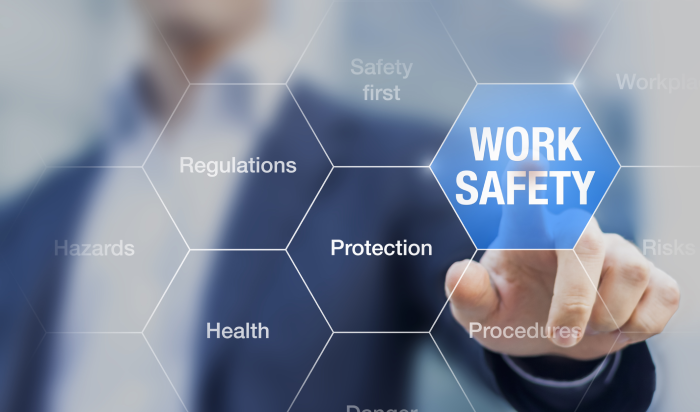The workplace should be an environment where employees feel safe and secure. However, accidents and injuries can happen, and it's crucial for employees to understand their rights and the legal framework surrounding workplace safety. Karam Law Office is dedicated to protecting the well-being of workers. We proudly defend the rights of injured workers with exceptional attorneys and industry-leading client services.
All workers should understand the essential regulations that dictate how you can and cannot be treated in the workplace. Knowing when and where you can draw the line and when an employer is overstepping can empower you with knowledge you need to navigate workplace safety concerns properly.
The Importance of Workplace Safety Regulations
Workplace safety regulations exist to prevent accidents, injuries, and illnesses. These regulations establish minimum safety standards that employers must adhere to in order to provide a safe work environment for their employees. Federal and state regulations work in tandem to create a comprehensive framework and provide a more structured system for employers to follow:
- Federal Regulations: The Occupational Safety and Health Administration (OSHA) is the federal agency responsible for workplace safety and health standards. OSHA sets enforceable standards for various industries and enforces those standards through inspections and citations.
- State Regulations: Many states have their own workplace safety and health agencies that may implement stricter regulations or cover areas not addressed by federal OSHA standards.
Understanding Your Rights Under OSHA
You have likely seen the OSHA posters, hanging in your break room or employee lounge. That is because employers are required to notify workers of their rights under OSHA. The Occupational Safety and Health Act of 1970 (OSHA Act) grants employees several key rights. In case you have never taken the time to read over these informative posters, here is a breakdown of what rights OSHA grants you as an employee:
- The Right to a Safe Workplace: Employers have a legal obligation to provide a workplace free from recognized hazards that are likely to cause death or serious physical harm.
- The Right to Know About Hazards: Employees have the right to request and obtain information about potential hazards in their workplace. This includes access to safety data sheets (SDS) for hazardous chemicals used on the job.
- The Right to File a Complaint: If you believe your workplace is unsafe or that your employer is not following safety regulations, you have the right to file a complaint with OSHA anonymously and you cannot legally be punished or reprimanded for doing so.
- The Right to Refuse Unsafe Work: In situations where you have a reasonable belief that working conditions are unsafe and pose a danger to your health or safety, you have the right to refuse to perform the work until the hazard is addressed. However, this right comes with certain limitations, and it's essential to consult with an attorney if you find yourself in such a situation.
Key Workplace Safety Regulations
OSHA standards cover a wide range of workplace hazards. Here are some of the most common areas with regulations:
- Hazard Communication: Employers must have a written hazard communication program that informs employees about hazardous chemicals in the workplace, including their properties, potential health effects, and safe handling procedures.
- Personal Protective Equipment (PPE): Employers must provide appropriate PPE, such as safety glasses, gloves, respirators, or hearing protection, when necessary to protect employees from workplace hazards.
- Fall Protection: Regulations address fall hazards from heights, requiring employers to provide fall protection systems like guardrails, safety nets, or personal fall arrest systems.
- Machinery and Equipment Safety: Standards exist for the safe operation and maintenance of machinery and equipment, including lockout/tagout procedures to prevent accidental activation during maintenance.
- Bloodborne Pathogens: Workers who may be exposed to blood or other bodily fluids must be trained on safe handling practices and provided with appropriate PPE.
- Indoor Air Quality: OSHA sets standards for acceptable indoor air quality levels to minimize workplace exposure to airborne contaminants.
- Ergonomics: Regulations address ergonomic hazards related to repetitive motions or awkward postures that can lead to musculoskeletal disorders.
What to Do if You Are Injured at Work
While we like to think we can prevent all accidents from happening, that is, unfortunately, not realistic. The occasional workplace accident is inevitable and it does not have to be a stressful ordeal if you are prepared. If you are injured at work, it's important to take the following steps:
- Seek Medical Attention: Get immediate medical attention for your injury, following all doctor's orders for treatment and rehabilitation.
- Report the Injury: Inform your supervisor or employer about the accident and your injury as soon as possible. There may be specific reporting procedures required by your workplace.
- File a Workers' Compensation Claim: Most states have workers' compensation laws that provide benefits to employees who are injured or become ill on the job. Time limits often apply for filing a claim, so it's crucial to act promptly.
- Consult with an Attorney: An experienced workplace injury attorney at Karam Law Office can help you navigate the workers' compensation process, ensure your rights are protected, and fight for the maximum benefits you deserve.
Empowering Yourself with Knowledge
By understanding your workplace safety rights and the relevant regulations, you can play a proactive role in ensuring your own safety and the safety of your colleagues. If you have concerns about unsafe working conditions or are unsure about your rights after a workplace injury, don't hesitate to seek legal guidance.
Contact Karam Law Office Today
Karam Law Office is committed to advocating for the rights of injured workers. We can help you understand your legal options, navigate the complexities of workers' compensation claims, and fight for the compensation you deserve. Contact us today to learn more.




